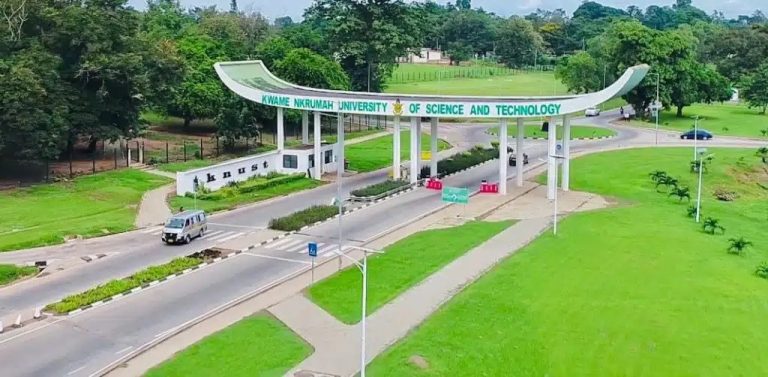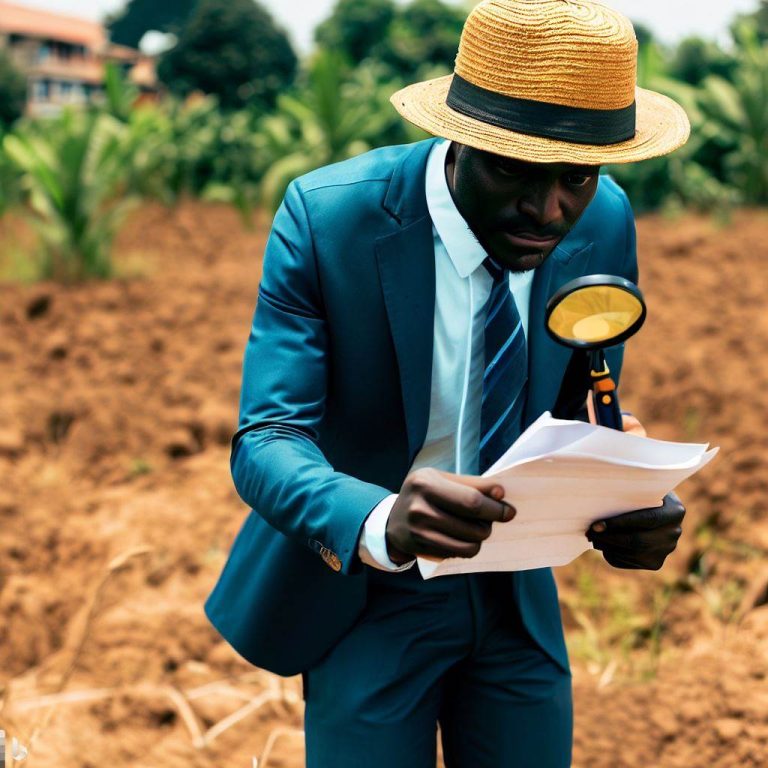How much is a plot of land in Ghana?
Exploring Land Prices in Ghana’s Real Estate Market
Introduction
Interested in investing in Ghana’s real estate market or purchasing a plot of land? Understanding the current land prices in Ghana is crucial for making informed decisions. As Ghana’s real estate market continues to flourish, land prices have become a significant point of interest for both local residents and international investors.
Ghana, a vibrant economy in West Africa, has experienced rapid urbanization and population growth, driving the demand for residential, commercial, and industrial properties. This surge in demand has directly impacted the prices of land throughout the country. Whether you are planning to build your dream home, start a business, or secure a long-term investment, having insight into average land prices in Ghana is essential.
Ghana’s real estate market offers diverse opportunities, ranging from bustling urban centers like Accra and Kumasi to serene coastal towns and rural areas. Each location carries its own unique characteristics that influence the cost of land. Factors such as proximity to amenities, infrastructure development, and growth potential all contribute to the overall value of land in Ghana.
In this blog post, we will delve into the intricacies of land prices in Ghana’s real estate market. We will explore the key factors that influence land prices, discuss average price ranges in different regions, and provide valuable insights for individuals interested in purchasing land in Ghana. By gaining a deeper understanding of the dynamics surrounding land prices, you will be better equipped to navigate the market and make well-informed decisions regarding your real estate investments.
Join us as we embark on a journey through Ghana’s land market, uncovering the factors shaping land prices and providing you with essential knowledge to make confident investment choices in this dynamic and promising nation.
Read Also: How to do a land title search in Ghana
II. Factors Influencing Land Prices in Ghana
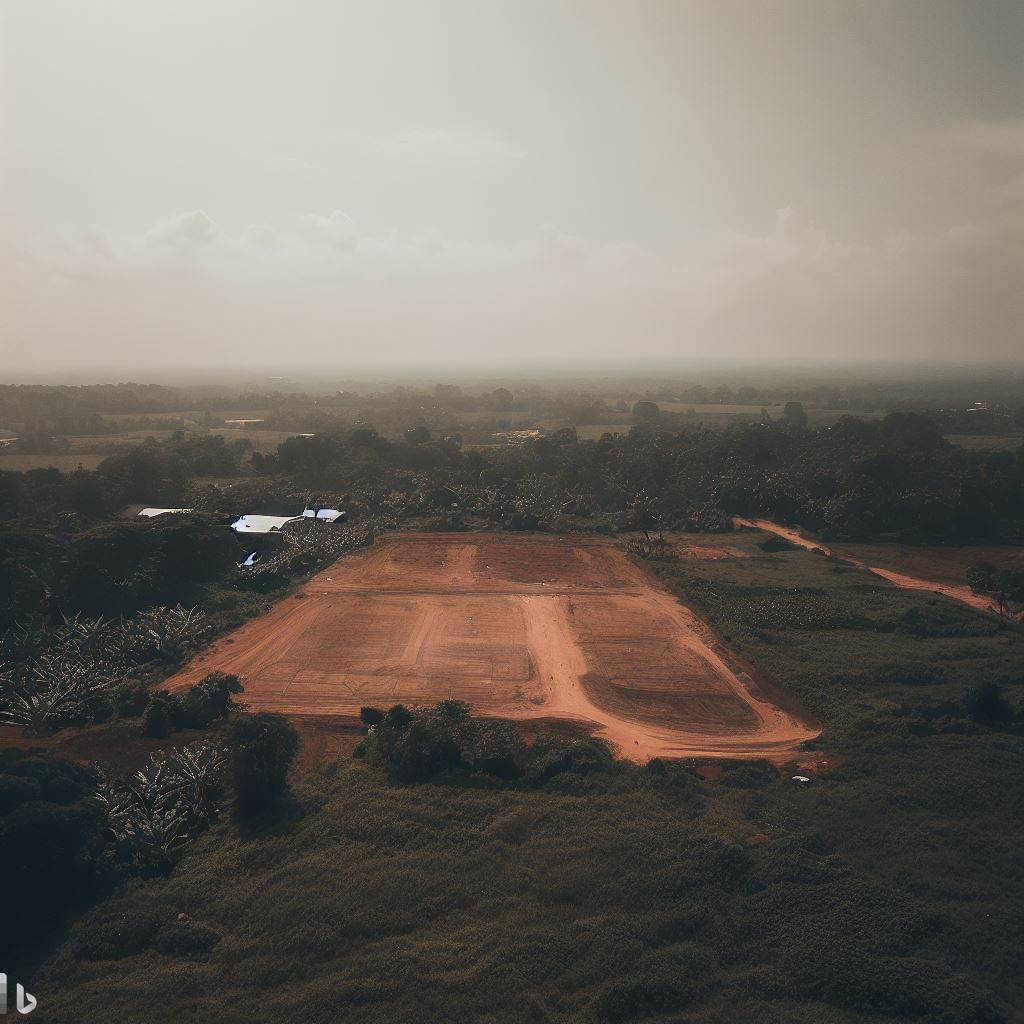
A. Location
The location of a plot of land is a crucial factor that significantly influences its price in Ghana. In prime locations such as major cities or highly desirable neighborhoods, land prices tend to be higher compared to remote or less developed areas. This is primarily due to the increased demand for land in convenient and well-connected locations.
Prime locations offer advantages such as proximity to commercial centers, educational institutions, healthcare facilities, transportation networks, and recreational amenities. Land in such areas is often in high demand for residential, commercial, or mixed-use developments. Consequently, the scarcity of land in these sought-after locations drives up its price.
B. Size and Shape
The size and shape of a plot of land also play a significant role in determining its value in Ghana. Larger plots of land typically command higher prices due to their potential for various development opportunities. Investors and developers prefer larger land parcels as they offer greater flexibility in designing and constructing buildings or infrastructure.
Moreover, irregularly shaped plots with unique features or favorable dimensions might also have increased value. For instance, plots with ample frontage along a main road or those with scenic views are generally more desirable, which can drive up their price. In contrast, smaller or oddly shaped plots may have limitations in terms of development potential and may be priced lower as a result.
C. Infrastructure and Amenities
The availability of infrastructure and amenities in the vicinity of the land significantly impacts its price in Ghana. Infrastructure refers to essential facilities such as roads, electricity, water supply, sewage systems, and telecommunications. Proximity to well-developed infrastructure enhances the accessibility and livability of the area, thus making the land more valuable.
Amenities, including schools, hospitals, shopping centers, parks, and recreational facilities, also contribute to the attractiveness and value of the land. Areas with a wide range of amenities are generally preferred by homebuyers and investors, leading to higher land prices. Additionally, the presence of planned or upcoming infrastructure projects, such as highways, airports, or government initiatives, can positively impact land prices in the surrounding areas.
D. Development Potential
The development potential of land is a crucial factor influencing its price in Ghana. Land with high development potential, such as those designated for residential, commercial, or industrial purposes, tends to have a higher market value. The zoning regulations and land-use plans set by local authorities play a significant role in determining the development potential of a specific plot of land.
Factors that contribute to the development potential include the availability of necessary permits, feasibility studies, environmental considerations, and compatibility with the surrounding land uses. Land with significant development potential is attractive to investors and developers seeking profitable opportunities, which can drive up its price.
E. Legal and Regulatory Factors
Land ownership laws and regulations have a significant impact on land prices in Ghana. The clarity and enforceability of land titles, as well as the efficiency of the land registration process, can affect the perceived security and value of the land.
In recent years, the Ghanaian government has implemented various reforms aimed at improving the land administration system and addressing issues related to land tenure and ownership. These reforms, including the introduction of the Land Act and the Land Administration Project, have helped streamline land registration processes and enhance transparency.
Land with clear and legally recognized ownership rights tends to have higher prices, as it provides confidence to potential buyers and investors. Conversely, land with ambiguous ownership, disputes, or unresolved legal issues may be priced lower due to perceived risks .
Read Also: Get Building Permit In Ghana – Quick Easy Way
III. Average Land Prices in Ghana
Land prices in Ghana vary depending on various factors such as location, size, infrastructure, and development potential. Understanding the average land prices in different regions of Ghana and the variations between urban and rural areas is crucial for anyone interested in investing in Ghana’s real estate market. In this section, we will explore the average land prices in Ghana and provide insights into recent trends and changes.
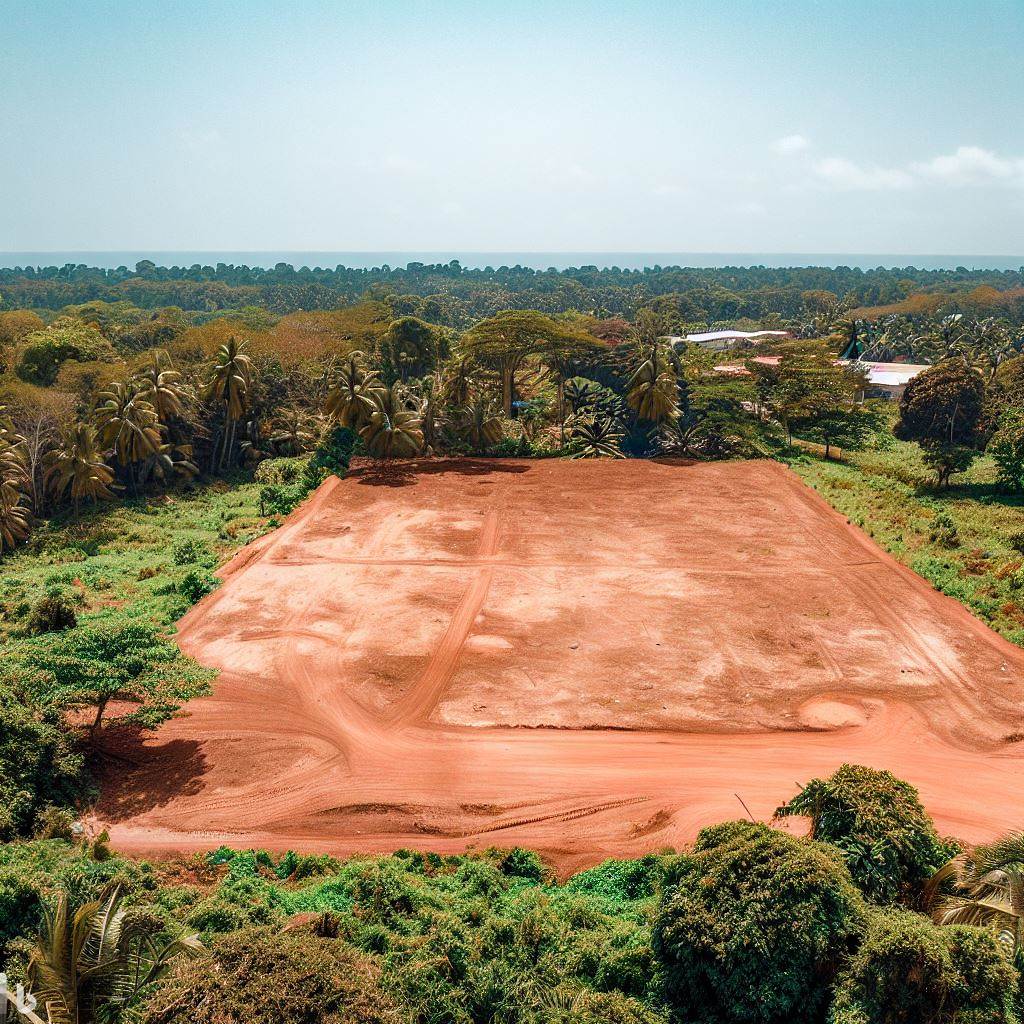
A. Average Land Prices in Different Regions of Ghana
- Greater Accra Region: The Greater Accra Region, particularly areas like East Legon, Airport Residential, and Cantonments, are known for higher land prices due to their proximity to major business districts and upscale amenities. Here, the average land prices can range from GHC 200,000 to GHC 1,000,000 per plot, depending on the specific location and infrastructure.
- Ashanti Region: In the Ashanti Region, cities like Kumasi and its surrounding areas, land prices are relatively lower compared to Greater Accra. The average land prices in this region can range from GHC 50,000 to GHC 300,000 per plot, depending on factors such as proximity to urban centers, road connectivity, and access to utilities.
- Western Region: The Western Region, known for its natural resources and mining activities, experiences variations in land prices. Areas like Takoradi and Sekondi have seen an increase in land prices due to the growth of the oil and gas industry. Average land prices in this region can range from GHC 70,000 to GHC 400,000 per plot.
- Central Region: The Central Region, with its beautiful coastline and historical landmarks, attracts both local and foreign investors. Land prices in cities like Cape Coast and Elmina can range from GHC 40,000 to GHC 250,000 per plot, depending on the proximity to tourist attractions and amenities.
B. Variations in Land Prices based on Urban and Rural Areas
Land prices in urban areas, especially in major cities like Accra and Kumasi, tend to be higher due to the demand for commercial and residential properties. The competition for limited land resources in urban areas drives up the prices significantly. On the other hand, rural areas generally have lower land prices, offering more affordable options for those seeking larger plots or agricultural purposes.
C. Recent Trends and Changes in Land Prices
Over the past few years, Ghana’s real estate market has experienced significant growth, leading to an increase in land prices. Factors such as urbanization, population growth, and infrastructural developments have contributed to this trend. Additionally, the government’s efforts to attract foreign investment and improve business conditions have also impacted land prices positively.
However, it’s important to note that land prices can fluctuate based on market conditions and external factors. It’s advisable to stay updated with the latest market trends and consult local real estate professionals to make informed decisions regarding land purchases in Ghana.
By understanding the average land prices in different regions of Ghana, as well as the variations between urban and rural areas, potential investors can have a clearer picture of the real estate landscape and make well-informed decisions regarding land investments.
Read Also: The Cost Of Building Plan and Design In Ghana
IV. Factors to Consider When Buying Land in Ghana
When it comes to purchasing land in Ghana, there are several crucial factors to consider to ensure a smooth and successful transaction. Conducting thorough research and due diligence is of utmost importance, especially considering the fluctuating land prices in Ghana. Here are some key factors to keep in mind when buying land, focusing on the SEO keyword “land prices in Ghana”:
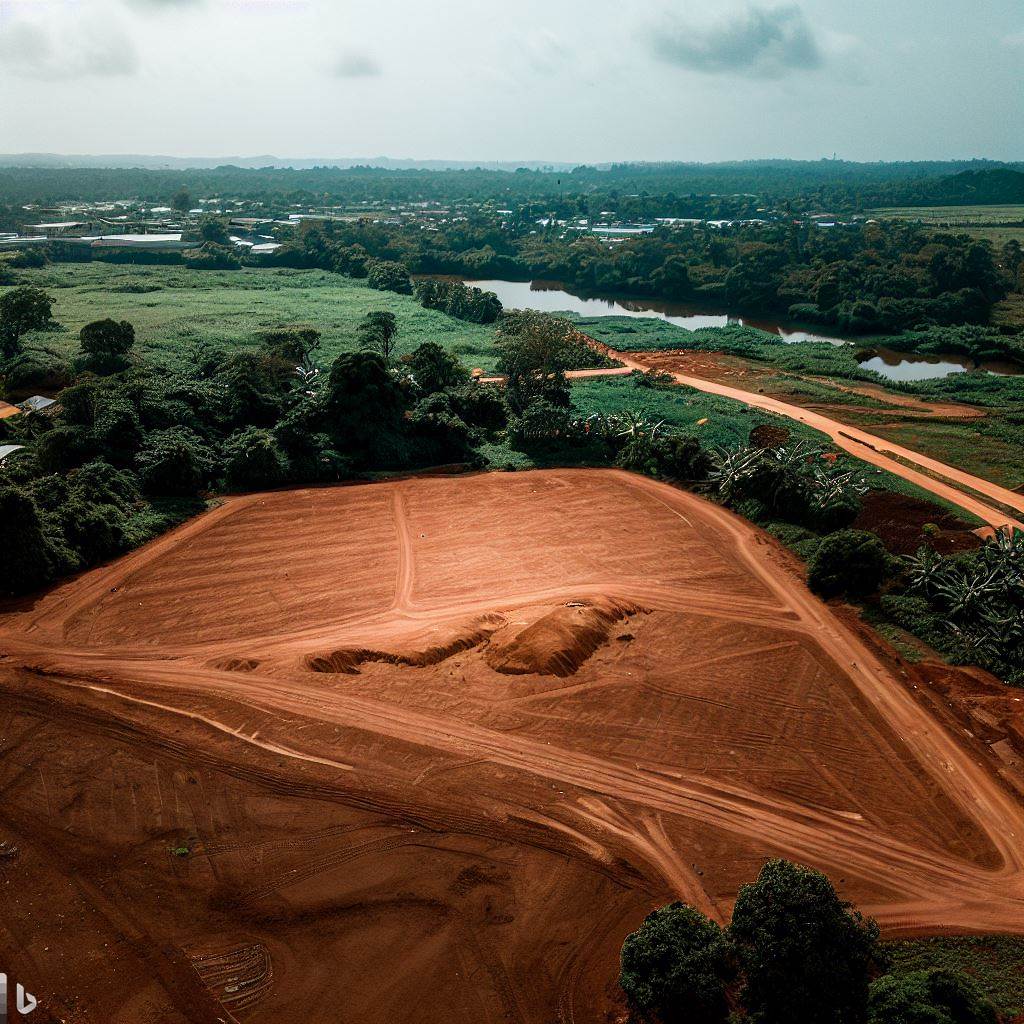
A. Conducting Due Diligence:
Before committing to buying land in Ghana, it is essential to conduct comprehensive due diligence. Research the current market trends and land prices in the specific region you are interested in. Understand the demand and supply dynamics, recent sales data, and any upcoming development plans that could impact land values. This research will help you make an informed decision about the fair price for the land you are considering.
B. Land Documentation:
Verifying land documents and titles is a crucial step to ensure that the land you intend to purchase has a clear and legal ownership history. Engage with relevant government agencies, such as the Lands Commission, to verify the authenticity of land documents and obtain an official search report. This report will reveal any encumbrances, disputes, or legal issues associated with the land. Clear and valid documentation will provide you with peace of mind and protect your investment.
C. Engaging Professionals:
When buying land in Ghana, it is highly recommended to involve professionals such as lawyers and surveyors. A qualified lawyer specializing in real estate can assist in reviewing and verifying land documents, ensuring legal compliance, and safeguarding your interests. A surveyor can accurately measure the land, identify boundaries, and assess its suitability for your intended use. Their expertise can help you avoid potential disputes or complications down the line.
D. Negotiation and Financing:
Negotiating land prices in Ghana can be a complex process. Familiarize yourself with the current market rates in the area and be prepared to negotiate based on the research you conducted earlier.
Keep in mind that factors like location, size, development potential, and infrastructure availability can influence the price.
Additionally, explore different financing options, such as mortgages or land loans, to determine the most suitable option for your financial circumstances. Seeking professional advice from a financial advisor or mortgage specialist can help you secure favorable financing terms.
By carefully considering these factors and following due diligence practices, you can navigate the land buying process in Ghana more effectively, ensuring you make an informed decision while keeping the fluctuating land prices in mind.
Remember, land prices in Ghana can vary significantly based on various factors, and it is crucial to stay up-to-date with market trends and consult with professionals to make a sound investment decision.
Read Also: How to Plan Your Building Project in Ghana
V. Investment Opportunities in Ghana’s Land Market
Investing in land in Ghana presents lucrative opportunities for individuals and businesses seeking to capitalize on the country’s growing real estate market. Here are some key points to consider when exploring investment opportunities in the land market:
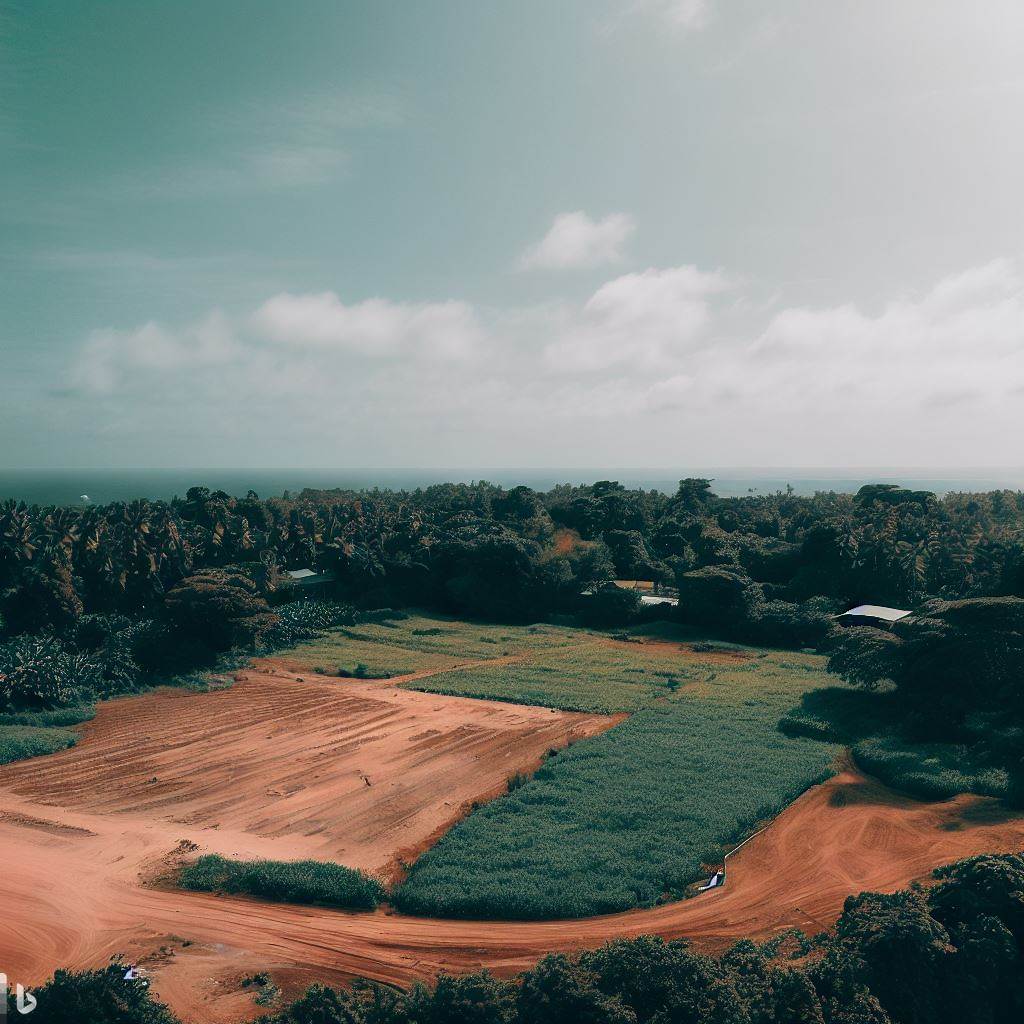
Increasing Demand and Value:
Ghana’s land market has witnessed a steady increase in demand, leading to rising land prices across various regions. As the economy grows and urbanization continues, the demand for land for residential, commercial, and industrial purposes is expected to remain high. This demand translates into potential value appreciation for land investments.
Strategic Location:
Ghana’s strategic location in West Africa, along with its stable political environment and growing economy, makes it an attractive destination for foreign direct investment. The government has implemented policies to encourage investment in real estate, further fueling the demand for land and creating investment opportunities for both local and international investors.
Infrastructure Development:
The Ghanaian government has been actively investing in infrastructure development, including roads, utilities, and transportation networks. These infrastructure developments not only enhance the overall quality of life but also increase the value of land located in proximity to these amenities. Investing in well-located land can yield substantial returns as the infrastructure continues to improve.
Tourism and Hospitality Sector:
Ghana is becoming an increasingly popular tourist destination, attracting visitors from around the world. This has led to a growing demand for land in areas suitable for tourism and hospitality developments, such as beachfront properties and eco-tourism sites. Investors can explore opportunities in the hospitality sector by acquiring land for resorts, hotels, or vacation rentals.
Agriculture and Agribusiness:
Ghana possesses fertile land and a favorable climate for agricultural activities. With the government’s focus on agricultural development, investing in agricultural land or supporting agribusiness ventures can be a profitable investment option. Opportunities exist in sectors such as commercial farming, food processing, and export-oriented agricultural ventures.
When considering land investments in Ghana, it is essential for investors to conduct thorough research and due diligence. The following steps are crucial:
- Research: Gain a comprehensive understanding of the local real estate market, including historical trends, current land prices, and projected growth areas. Stay informed about government policies, infrastructure developments, and economic indicators that can impact land prices.
- Professional Advice: Engage the services of professionals such as real estate agents, lawyers, and surveyors who have expertise in Ghana’s land market. They can guide you through the legal aspects, help with due diligence, and ensure the legitimacy of land documents and titles.
- Stay Informed: Continuously monitor the evolving land market in Ghana. Stay updated on changes in land ownership laws, regulations, and government initiatives that can impact land prices and investment opportunities. Subscribe to relevant publications, attend real estate conferences, and network with industry professionals to stay informed.
Conclusion
In conclusion, the land market in Ghana presents promising investment opportunities due to increasing demand, strategic location, infrastructure development, and growth in sectors such as tourism and agriculture.
However, it is crucial for investors to conduct thorough research, seek professional advice, and stay informed about the evolving land market dynamics in Ghana.
By following these steps, investors can position themselves to make informed decisions and maximize their potential returns on land investments in Ghana.


